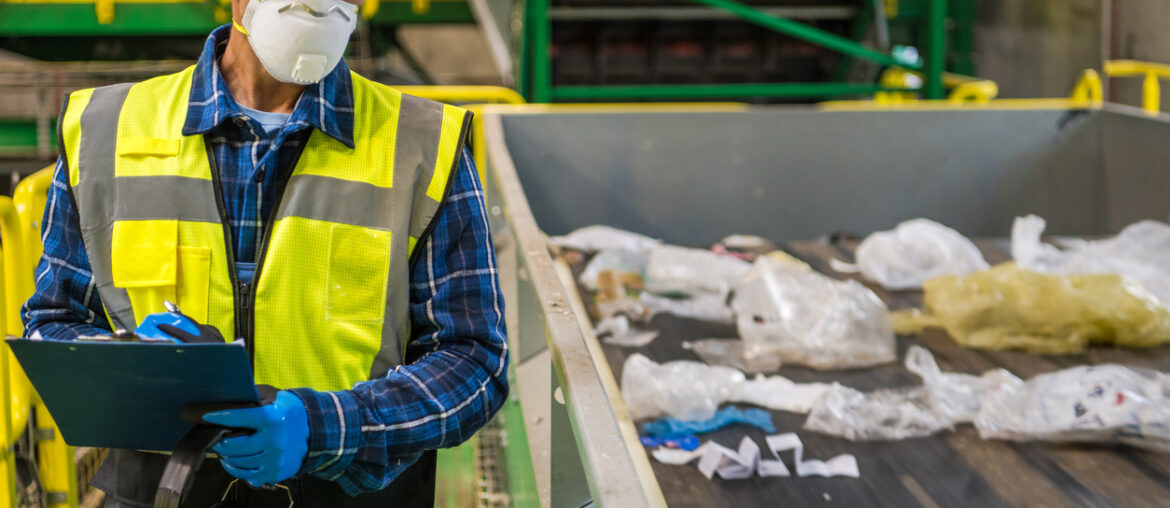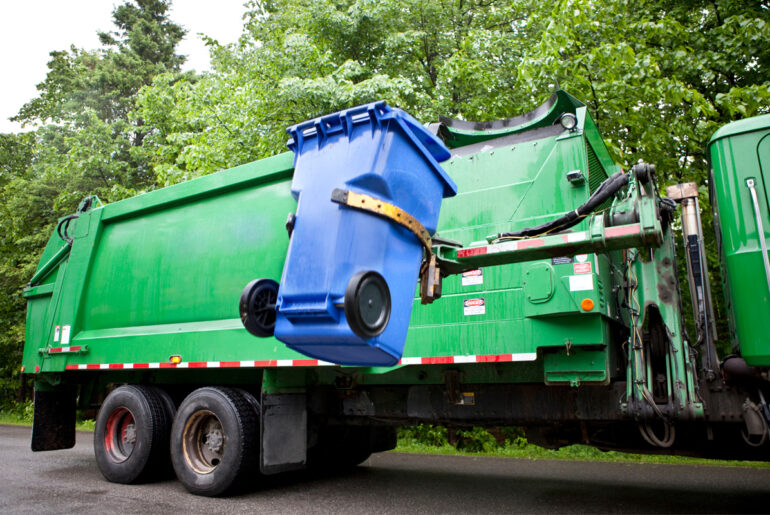Starting a waste management business in 2024 can be a lucrative and environmentally impactful venture. With the increasing focus on sustainability and proper waste disposal, there is a growing demand for efficient waste management services. In this article, we will guide you through the steps to starting your own waste management business in 2024, from conducting market research to obtaining necessary permits and licenses. Let’s dive in!
What does a waste management business do?
A waste management business is a company that provides services related to the collection, transportation, and disposal of waste. It plays a crucial role in maintaining a clean and hygienic environment by ensuring that waste is managed in an efficient and responsible manner.
One key feature of a waste management business is the establishment of an efficient system for waste collection. This includes strategically placing collection points in areas of high waste generation and ensuring regular and timely collection. The system should also incorporate effective recycling initiatives to minimize the amount of waste going to landfills.
Transportation is another important function of a waste management business. Waste must be transported from collection points to disposal facilities in a safe and environmentally-friendly manner. This may involve using specially equipped vehicles, adhering to transportation regulations, utilizing route planning software, and minimizing emissions and fuel consumption.
Disposal is the final step in waste management. A waste management business must ensure that waste is disposed of properly to prevent pollution and protect public health. This can involve utilizing landfill facilities, waste-to-energy plants, or other disposal methods that meet environmental standards.
The Benefits of Starting a Waste Management Business
Starting a waste management business offers numerous benefits for entrepreneurs and the environment.
- The potential for high profits is due to the increasing demand for effective waste management solutions. As populations and urbanization continue to grow, the volume of waste generated also escalates, creating a lucrative market for waste management companies.
- A significant impact on reducing landfill contamination. By implementing proper waste management practices, such as recycling, composting, and responsible disposal, waste management businesses play a crucial role in diverting waste from landfills. This helps to prevent the accumulation of hazardous materials and reduces the risk of groundwater and soil contamination.
- Creates job opportunities in the community. Recycling centers, waste collection, and processing facilities require a skilled workforce, providing employment opportunities for individuals of various backgrounds and qualifications. This not only contributes to the local economy but also helps to alleviate unemployment.
1. Choose a Waste Industry Sector
When selecting a waste industry sector to venture into for your waste management business, it is essential to consider the waste needs in your local area or the region you plan on operating. From medical waste to construction waste, electronic waste to green waste, animal/pet waste to industrial waste, and even nuclear waste, various sectors offer distinct opportunities and challenges.
- Medical waste from healthcare facilities and clinics requires careful handling to prevent the potential spread of infections and diseases.
- Construction waste, on the other hand, involves the disposal of materials like concrete, bricks, and timber, which necessitates efficient recycling and waste reduction strategies.
- Electronic waste, encompassing discarded electronics and appliances, presents an opportunity for specialized recycling and responsible disposal practices.
- Green waste, mainly organic materials such as grass clippings, branches, and leaves, can be composted or turned into a renewable energy source.
- Animal and pet waste, generated by animal shelters, veterinary clinics, and households calls for appropriate disposal methods to address environmental concerns.
- Industrial waste, originating from manufacturing processes, may include hazardous materials that require proper handling, treatment, and disposal.
- Nuclear waste, which is highly hazardous and radioactive, demands stringent safety protocols and specialized facilities for storage and disposal.
To ensure the success of your waste management business, carefully analyze the waste needs in your locality or region. Identify the sector that aligns best with your expertise, available resources, appropriate regulations, and potential market demand.
2. Obtain the necessary funding
Securing funding for a waste management business is crucial in order to get your business off the ground and ensure its long-term success. Without adequate funding, it can be challenging to cover the initial costs and ongoing expenses associated with the waste management industry.
To effectively secure funding, it is essential to approach banks, venture capital firms, and private investors with a compelling pitch that outlines your business plans and expected returns. These potential investors need to understand the potential for growth and profitability in your waste management business.
When approaching banks, make sure to have all the necessary financial documents prepared, such as business plans, cash flow projections, and balance sheets. Banks often require a detailed analysis of the business and its potential revenue streams before considering providing loans.
Venture capital firms and private investors are interested in high-growth potential projects. Therefore, your pitch should emphasize the unique aspects of your waste management business and explain how it can generate substantial returns.
3. Develop a business plan
A business plan for a waste management business should include key components that address various aspects of the business. These components are crucial in guiding the business toward success and effectively managing waste management operations.
Firstly, a well-defined mission statement is essential, as it outlines the purpose and goals of the business. It clarifies the company’s vision and ensures that all activities are aligned with its objectives.
Next, the corporate structure should be clearly outlined, including the legal structure, ownership, and management team. This provides an overview of the organizational hierarchy and helps determine each member’s roles and responsibilities.
Setting tangible goals is crucial for measuring the success of a waste management business. These goals should be specific, measurable, achievable, realistic, and time-bound (SMART). They can include targets for waste diversion, recycling rates, customer satisfaction, or financial performance.
Identifying the target customer base is essential for developing effective marketing and service strategies. A waste management business can cater to various customers, such as households, commercial businesses, or industrial sites. Understanding the specific needs and preferences of the target customers helps in tailoring services and establishing long-term relationships.
Analyzing competitors is critical to identifying market trends, pricing strategies, and unique selling points. This analysis helps in differentiating the business, developing competitive advantages, and adjusting marketing strategies accordingly.
4. Register Your Business and Obtain the Proper Permits
Register your waste collection business and obtain the necessary permits. First, you must research and familiarize yourself with state and local government regulations and environmental and waste industries to determine the specific permits required for your operation. Consulting these regulations is vital, as they will outline the legal obligations and standards that your business must adhere to to ensure environmental and public safety.
Once you have identified the permits needed, you can begin the registration process. This typically involves contacting the appropriate government agency responsible for waste management in your area. They will provide you with the necessary paperwork and guide you through the registration process. During registration, you may need to provide information such as your business name, address, contact details, type of waste collection services provided, and your intended scope of operations.
Start Using RouteManager!
5. Get the required equipment
After securing the proper permits and registering your waste management business, it is essential to invest in the necessary equipment to carry out your operations effectively. The type and quantity of equipment needed will depend on the specific services you plan to offer, such as waste collection, recycling, composting, or hazardous waste disposal.
Some common equipment needed for a waste management business includes:
- Waste collection trucks: These are essential for collecting and transporting waste from customers to disposal facilities.
- Recycling equipment: This includes shredders, compactors, balers, and sorting machines to process recyclable materials.
- Composting equipment: Businesses that offer composting services need equipment such as compost bins, turners, and screening machines.
- Hazardous waste storage and disposal equipment: If your business deals with hazardous waste, you will need specialized containers, storage facilities, and transportation vehicles to ensure safe handling and disposal.
- Personal protective equipment (PPE): This includes gloves, masks, goggles, and protective clothing for your employees to ensure their safety while handling waste.
Consider Investing in Route Planning Software
In today’s modern world, waste management has become a pressing issue, and utilizing technology solutions can greatly streamline the process. One such solution is waste route planning software like RouteManager, which analyzes data and optimizes waste collection routes for efficiency. By eliminating unnecessary travel and reducing fuel consumption, this software can significantly reduce labor costs and improve collection efficiency.
Benefits of Using RouteManager
RouteManager is a waste route planning software that helps garbage drivers and delivery businesses with last-mile logistics. Some of the key advantages of using route-planning software include:
1. Advanced Route Planning: Utilizes advanced algorithms to create optimized delivery routes that take into account factors such as traffic patterns, road conditions, and customer preferences. This ensures drivers take the most efficient routes possible, saving time and fuel costs.
2. Real-Time Tracking: By providing real-time tracking of deliveries, waste businesses can monitor the progress of their drivers and ensure that deliveries are being made on time. This can help improve customer satisfaction and streamline operations.
3. Reporting & Analytics: Offers comprehensive reporting and analytics tools that allow waste businesses to analyze delivery performance, track key metrics such as delivery times and fuel consumption, and identify areas for improvement. This data-driven approach can help businesses make informed decisions to optimize their delivery operations.
4. Integration with Existing Systems: Easily integrate with existing systems such as GPS devices, fleet management software, and customer relationship management (CRM) systems. This seamless integration streamlines the delivery process and ensures that all data is centralized and accessible in one place when planning waste routes.
6. Employ staff trained in waste management
Hiring trained waste management staff is paramount to ensuring effective waste disposal and environmental sustainability. Trained professionals possess the knowledge and expertise necessary to handle hazardous waste, reduce waste generation, and promote recycling efforts.
When searching for potential candidates, certain qualities and qualifications should be considered. Firstly, candidates should possess relevant qualifications, such as a degree in environmental science, waste management, or a related field. This academic background equips them with the foundational knowledge to understand the complexities of waste management.
In addition to qualifications, candidates must demonstrate certain qualities. Strong problem-solving skills are crucial to effectively addressing waste-related challenges. Attention to detail is essential to ensuring compliance with regulations and proper waste segregation. Excellent communication skills are important for effectively coordinating with team members, supervisors, and external stakeholders.
Moreover, a waste management team leader is essential to ensuring a well-organized and efficient operation. The team leader should possess strong leadership skills, good decision-making abilities, and the capability to guide and motivate the team. They play a pivotal role in setting and achieving waste reduction targets and implementing best practices.
Lastly, providing a healthy working environment is crucial to supporting the well-being of waste management staff. This includes appropriate work schedules, adherence to safety procedures and access to necessary personal protective equipment.
7. Advertise Your Waste Collection Business
Advertising is a crucial step in growing a waste collection business. It plays a significant role in raising brand awareness, attracting new customers, and ultimately driving business growth. Implementing effective advertising strategies can help your business stay ahead in a competitive market.
One key strategy for advertising your waste collection business is to develop advertising campaigns. This involves creating engaging content that showcases your services, highlighting the benefits of choosing your waste collection company over competitors. Whether it’s through radio and television ads, online banners, or social media posts, a well-designed advertising campaign can effectively reach your target audience and increase brand visibility.
Monitoring the performance of your advertising campaigns is equally important. By tracking key metrics such as click-through rates, conversions, and customer feedback, you can evaluate the success of your advertisements. This data can help you identify what is working well and what needs improvement, allowing you to optimize future advertising efforts and allocate resources effectively.
Utilizing social media channels is another essential advertising strategy. Platforms like Facebook, Instagram, and Twitter provide opportunities to connect with potential customers and build brand loyalty. By regularly posting engaging content, responding to inquiries, and running targeted paid campaigns, you can reach a broader audience and generate leads for your waste collection business.
In addition to online advertising, don’t overlook the potential of traditional print marketing. Flyers, brochures, and newspaper ads can still be effective in capturing the attention of local customers who might not be as active online.
Final Thoughts
Starting a waste management business can be a rewarding venture that not only contributes to environmental sustainability but also provides essential services to communities. By following the steps outlined in this guide, you can successfully establish and grow your waste collection business in 2024.
One key aspect of running a successful waste management business is optimizing your operations for efficiency and profitability. Partnering with a software solution like RouteManager can help streamline your processes, reduce costs, and improve overall performance.
RouteManager offers comprehensive waste management software that is designed to meet the specific needs of waste collection businesses. This software helps you automate tasks, reduce fuel costs, improve productivity, and enhance customer satisfaction. Book a demo today!
FAQs
What is the initial cost of starting a waste management company?
The cost of starting a waste management company can vary depending on several factors, such as the scale of operations, equipment needed, licensing and permits, marketing expenses, and more. On average, it can cost anywhere from $50,000 to $200,000 to start a waste management business. This budget should cover initial costs such as purchasing or leasing vehicles for waste collection, acquiring necessary equipment for sorting and recycling, obtaining permits and licenses, and setting up a marketing strategy.
How do you market a waste management company?
A key approach is developing engaging advertising campaigns that highlight the benefits of choosing your services over competitors. This can be done through various channels, such as radio and television ads, online banners, digital marketing, print marketing, and social media posts.



